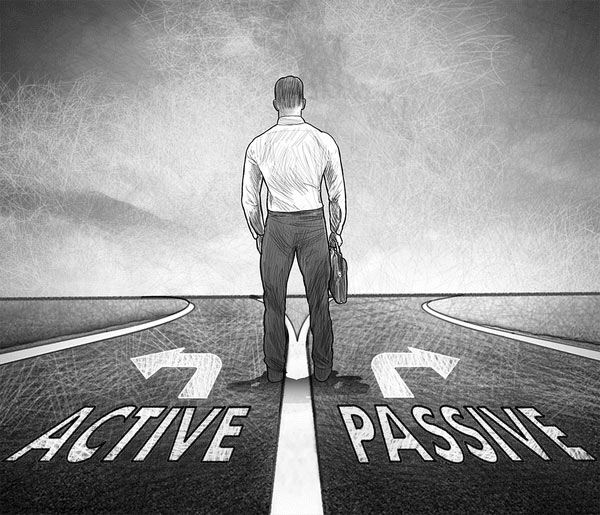Why We Sleep
05 February 2023

Hi, The Investor’s Podcast Network Community!
Welcome back to We Study Markets!
Today, we’ll discuss the sleep habits of top investors, why sleep is valuable, and how you can improve your sleep quality, in just 4 minutes to read 📖
Get smarter about valuing businesses in just a few minutes each week.
Get the weekly email that makes understanding intrinsic value
easy and enjoyable, for free.
“Sleep is the single most effective thing we can do to reset our brain and body health each day. But humans are not sleeping the way nature intended. The number of sleep bouts, the duration of sleep, and when sleep occurs has all been comprehensively distorted by modernity.”
History of positive returns ✔️
Inflation-hedging potential ✔️
Resistance to market volatility ✔️
Land has helped investors preserve wealth for generations, and AcreTrader makes it easy to diversify with farm and timberland assets online — Find out how.
How often do you feel well-rested?
According to sleep expert Matthew Walker, many Americans don’t get enough quality rest each night.
Given that we spend close to one-third of our lives asleep, and given its role in cognitive function and decision-making, improving sleep can improve everything from our mood to our creativity to our investing decisions.
“The best bridge between despair and hope is a good night’s sleep,” Walker has said. “Inadequate sleep, even moderate reductions for just one week, disrupts blood sugar levels so profoundly that you would be classified as pre-diabetic.”
Top investors get plenty of rest
Some notable examples include:
1. Charlie Munger, Vice Chairman of Berkshire Hathaway and long-time business partner of Warren Buffett, has stated he believes that sleep is critical for clear thinking and making good decisions.
2. Ray Dalio, founder of Bridgewater Associates, one of the largest hedge funds in the world, has said sleep is a critical aspect of his daily routine and helps him stay focused.
3. T. Boone Pickens, a legendary oil and energy investor, has been quoted as saying he believes that getting enough sleep is critical for making sound investment decisions.
Warren Buffett is usually in bed by 10 p.m., then reads for an hour or so and falls asleep. He likes to get eight hours.
“I get quite a bit of sleep. I like to sleep,” he has said, citing how it improves his overall health and decision-making.
Amazon founder Jeff Bezos sleeps seven to eight hours per night. “I prioritize it. I think better. I have more energy. My mood is better,” Bezos once said. Bezos specifically ties good sleep to his capacity to make smart decisions.
Bill Gates reads for one hour before bed to improve his sleep, usually turning in around midnight for around seven hours.
Gates has said: “Even though it’s fun to stay up all night, maybe taking a red-eye flight, if I have to be creative, I need seven hours. I can give a speech without much sleep, I can do parts of my job that way, but in thinking creatively, I’m not much good without seven hours.”
Why sleep helps
Sleep is important because it helps to support physical, mental, and emotional health, according to Walker’s bestseller, Why We Sleep.
During sleep, the body repairs and rejuvenates itself, improving overall function, concentration, and memory. Sleep also helps regulate hormones and metabolism while reducing stress and inflammation.
Lack of sleep can lead to various health problems, including decreased immunity, increased risk of chronic diseases, and impaired cognitive and emotional functioning.
Walker is a sleep scientist who says that during sleep, the brain can consolidate memories, clear waste, and restore neural connections, which is essential for learning, creativity, and overall brain health.
Not getting enough sleep can have serious consequences for both physical and mental health. Some of the effects of sleep deprivation include:
1. Decreased cognitive function: Lack of sleep can impair attention, concentration, memory, and overall cognitive performance.
2. Reduced immune function: Sleep plays a crucial role in the functioning of the immune system, and not getting enough sleep can increase the risk of illness and disease.
3. Increased risk of chronic diseases: Chronic sleep deprivation has been linked to an increased risk of a variety of chronic diseases, including obesity, heart disease, and diabetes.
4. Impaired mood and emotional regulation: Sleep plays a role in regulating mood and emotions, and not getting enough sleep can lead to feelings of irritability, anxiety, and depression.
5. Decreased physical performance: Sleep is essential for physical recovery and rejuvenation, and lack of sleep can impair physical performance and increase the risk of injury.
Improving sleep quality
According to Walker, here are a few ways to improve the quality of your sleep:
1. Stick to a consistent sleep schedule: Try to go to bed and wake up at the same time every day, including weekends.
2. Create a relaxing bedtime routine: Engage in activities that help you relax before bed, such as reading or taking a bath.
3. Limit caffeine and alcohol: Avoid consuming these substances, especially close to bedtime, as they can disrupt sleep.
4. Exercise regularly: Physical activity can help you sleep better, but try to finish exercising at least a few hours before bedtime.
5. Avoid screens before bedtime: The blue light emitted by electronic devices can interfere with your body’s production of melatonin, a hormone that regulates sleep.
6. Create a sleep-conducive environment: Make sure your bedroom is quiet, cool, and dark, and consider investing in a comfortable mattress and pillows.
7. Use relaxation techniques: Techniques such as deep breathing, progressive muscle relaxation, and visualization can help you relax and fall asleep more easily.
8. Limit naps: Napping during the day can disrupt your sleep pattern and make it harder to fall asleep at night.
Dive deeper
You can purchase Walker’s brilliant book here.
That’s it for today on We Study Markets!
See you later!
If you enjoyed the newsletter, keep an eye on your inbox for them on weekdays around 6pm EST, and if you have any feedback or topics you’d like us to discuss, simply respond to this email.











